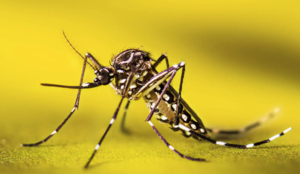Rise of Aedes Aegypti Mosquitoes in Los Angeles County: What You Need to Know

Los Angeles County residents are facing an unsettling surge in the number of Aedes aegypti mosquitoes. Often termed "ankle biters" for their propensity to bite below the waist, these mosquitoes have shown a marked increase in presence this year.
Los Angeles County residents are facing an unsettling surge in the number of Aedes aegypti mosquitoes. Often termed "ankle biters" for their propensity to bite below the waist, these mosquitoes have shown a marked increase in presence this year. Unlike the common house mosquito, which often breeds in larger sources like unclean pools, the Aedes mosquitoes opt for smaller water containers, such as bottle caps, vases, old tires, and any container holding a small amount of water.
Aedes aegypti, the yellow fever mosquito, and its counterpart, the Aedes albopictus or the Asian tiger mosquito, are invasive to California. These species can transmit various viruses, leading to diseases including Zika, dengue, chikungunya, and yellow fever.
What sets the Aedes mosquitoes apart is their distinctive appearance - they are small, black with white stripes on their legs and back, and are known for their aggressive biting behavior during the day, especially targeting the legs and ankles. Their life cycle is swift, with the capability to develop from egg to adult in under a week in warm conditions.
However, local residents can fight back against these invasive pests. To counteract the rising threat of these mosquitoes, residents are advised to:
- Routinely inspect and drain any stagnant water sources around homes. Even a small amount of water can serve as a breeding site.
- Use California native plants in landscaping as a natural, pesticide-free deterrent.
- Ensure rain barrels are securely screened to block mosquito access.
- Utilize mosquito fish or larvicides in home-based water bodies like ponds and fountains.
- Install mosquito screens on windows and doors to keep them out.
- Protect oneself by wearing long sleeves and pants and by using insect repellents with ingredients like DEET, picaridin, or oil of lemon eucalyptus.
